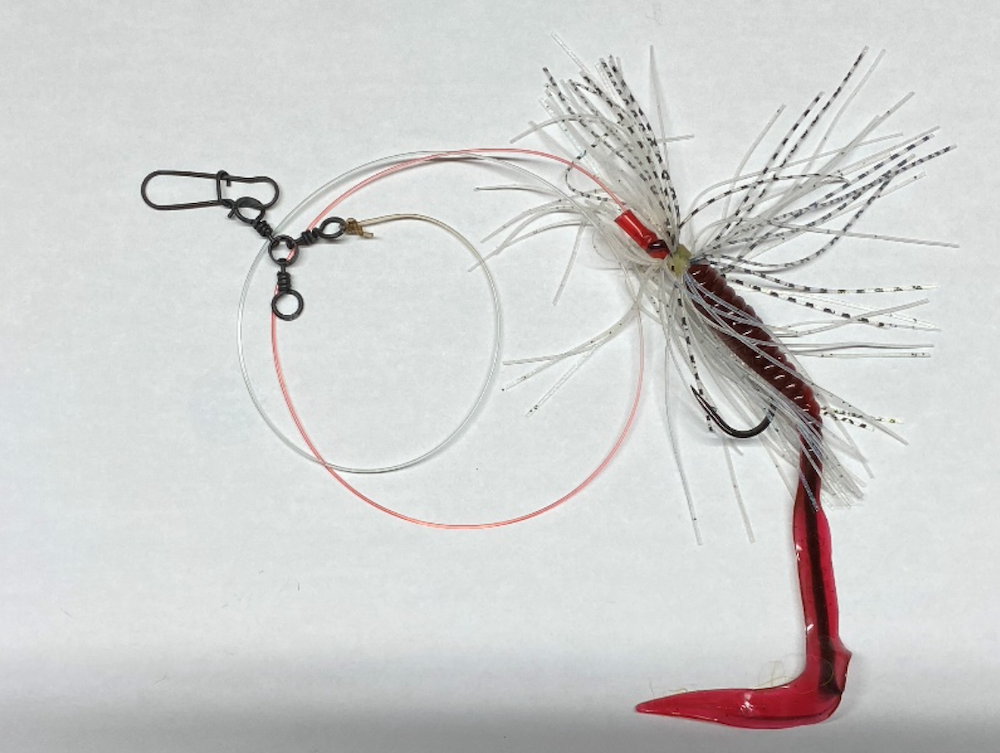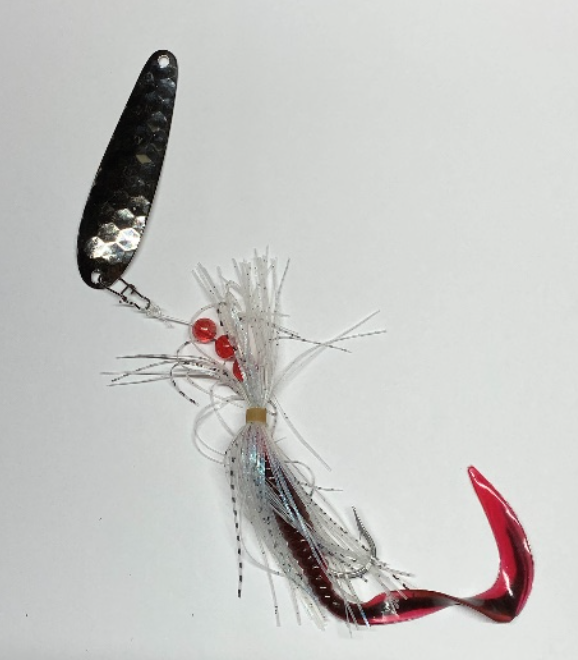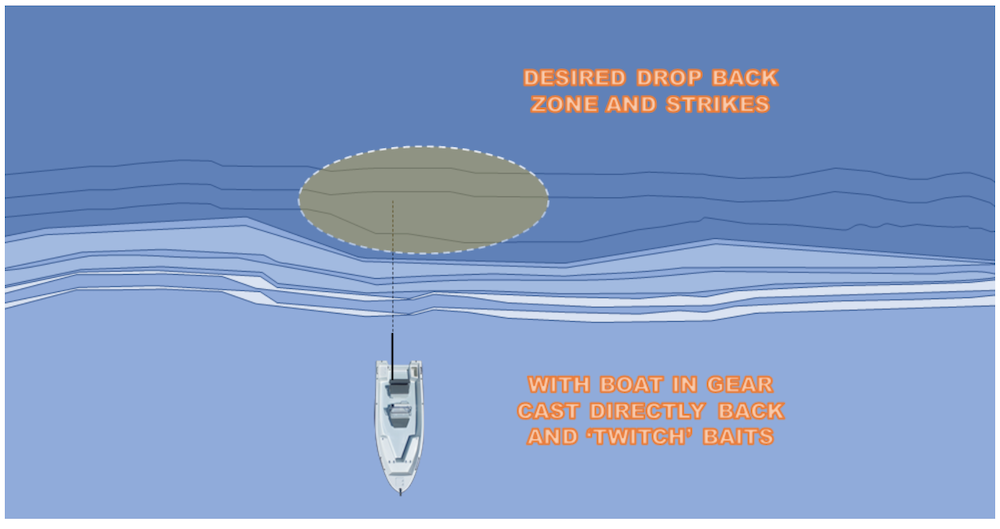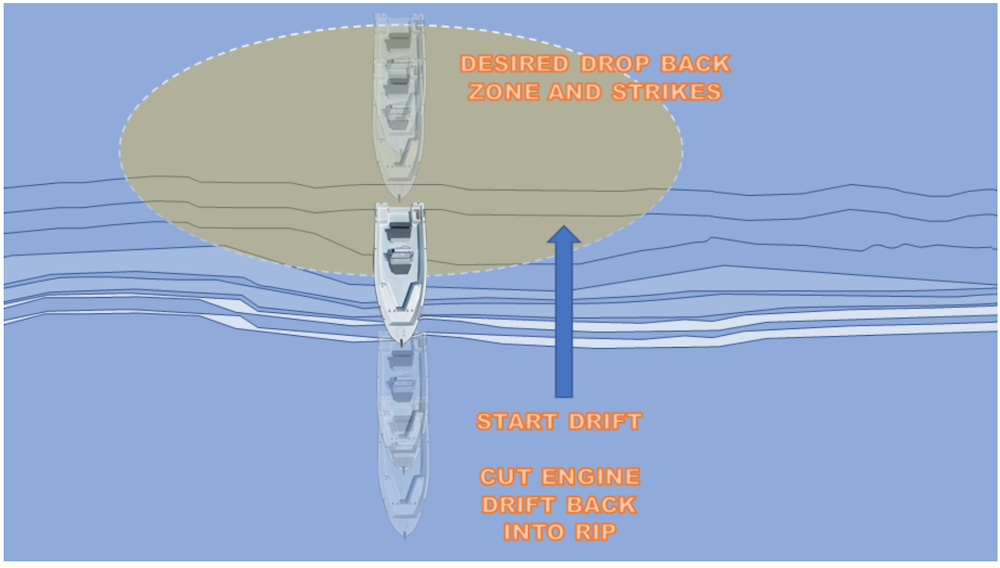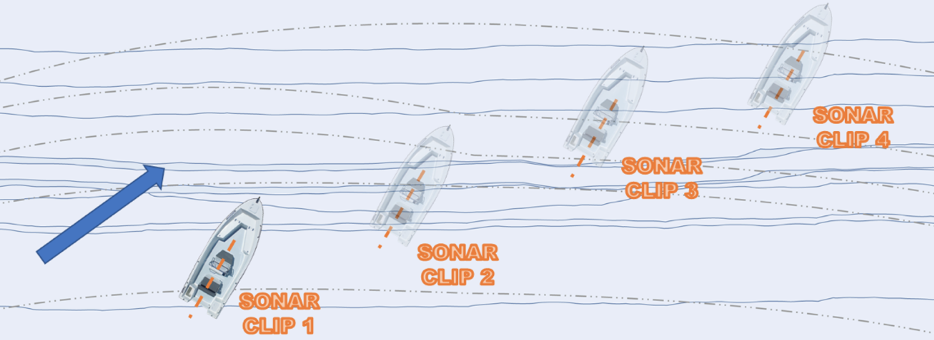Several years ago on a summer day out on the shifting shoals southeast of Monomoy Island, my brother Mark tied into a nice fluke. His medium heavy, fast action rod had a big parabolic bend in it, with the tip dipping into the water as he was reeling and cranking slowly, with purpose and intent.
With the net in my hands, I caught a glimpse of a large, brown speckled oval, with its' mouth wide open, head shaking and body thrashing. I swung with the net twice, and the fish narrowly escaped. On the third try, the fluke scampered across the surface with its head out of the water. That's when I heard a sharp ‘tink’ sound, and in my mind I knew the fluke had thrashed so hard that the leader had snapped.
Time slows down in these moments. Fortunately I had managed to get the net under the fluke so that in the moment where the line snapped, the fish fell downward into the net before it got a chance to escape.
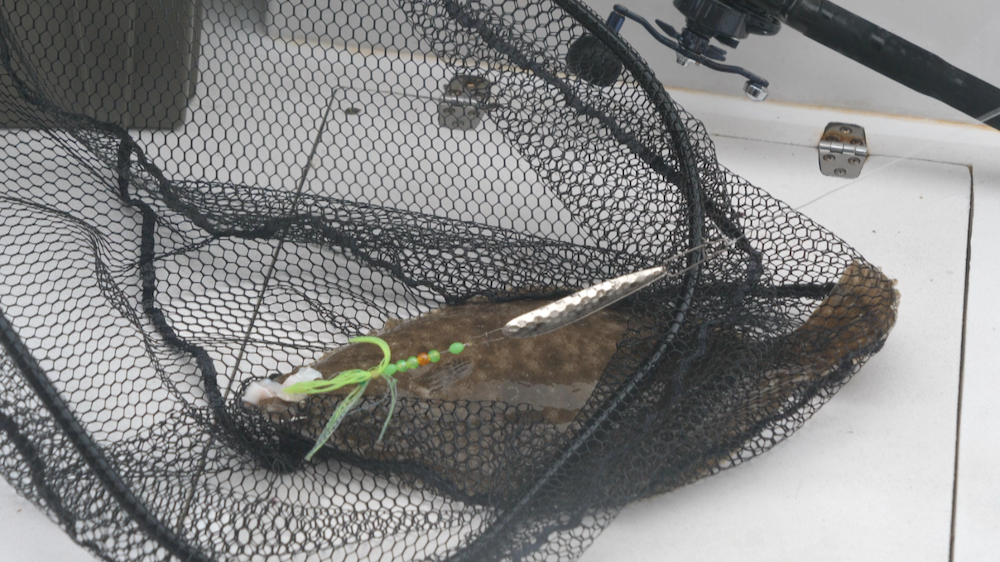
Having a net onboard is a must when targeting doormat fluke!
The fluke weighed just under ten pounds and I think it's still a personal best for my brother and a best for my boat to date. Two people and a fluke said a prayer that day, and two of the prayers were answered.
Fluke fishing for me has become synonymous with summertime. Fluke fishing is anything but boring and if you have never tried targeting these fish, I hope the following gives you some encouragement and incentive to go after these crafty bottom dwellers.
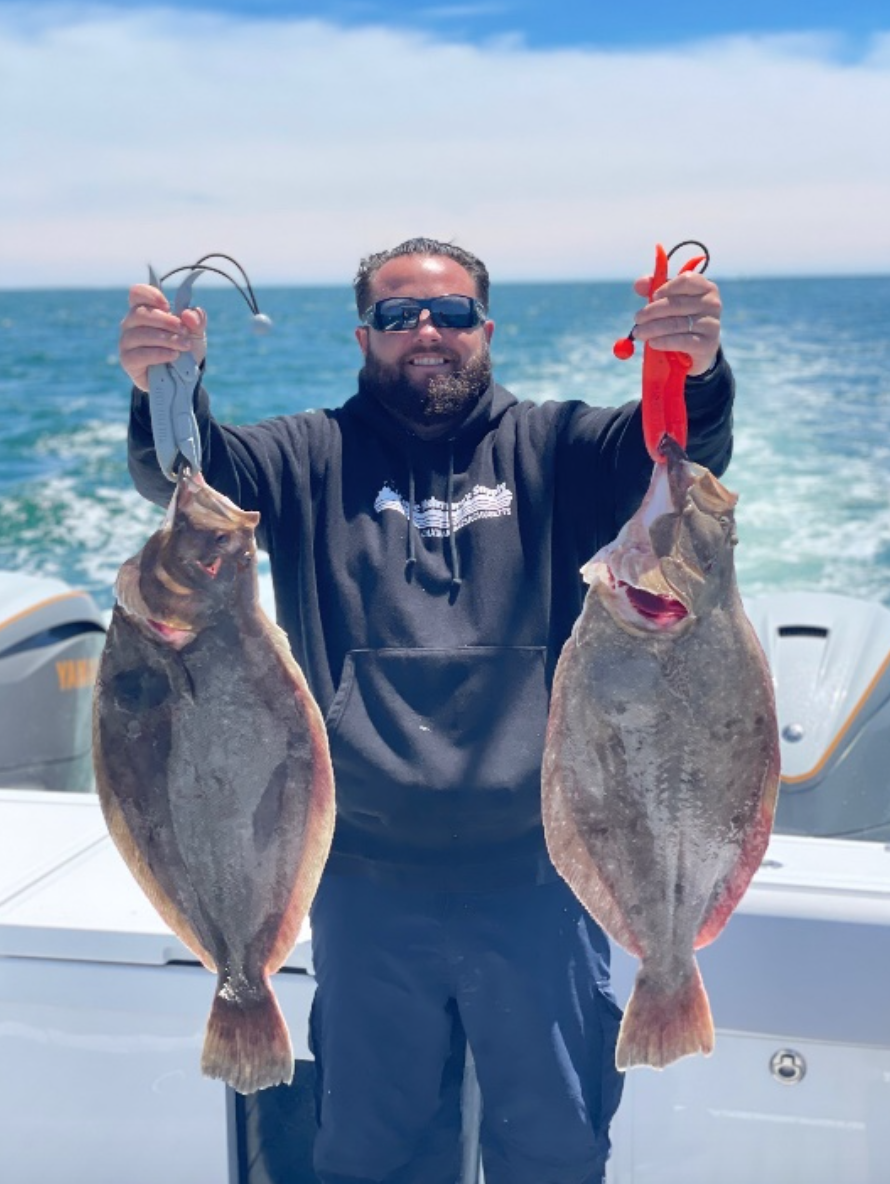
My cousin, Bruno Demir, with a couple doormats.
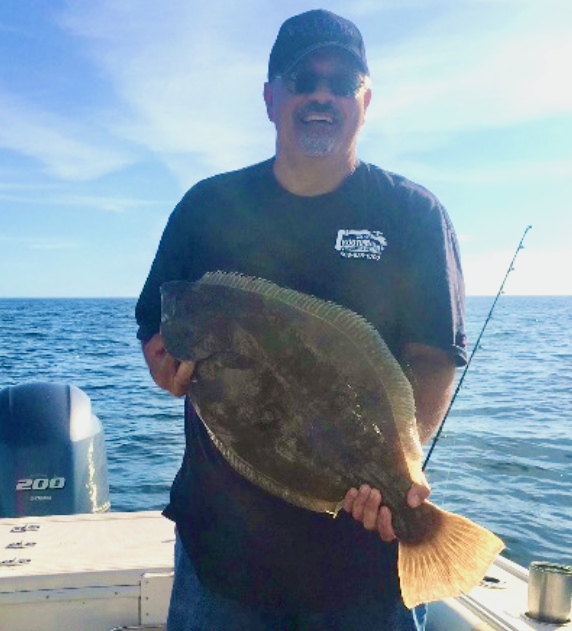
My brother, Mark Kooyomjian, with a quality fluke fish.
The Quarry
I find when speaking to people about fluke that there is a perception they are a sedentary and docile fish. However, I assure you they are anything but sedentary and docile. Fluke are constantly moving from area to area.
They are predators, and as such have all the instincts and habits of predators. They have stealth, surprise, and precision striking ability on their side.
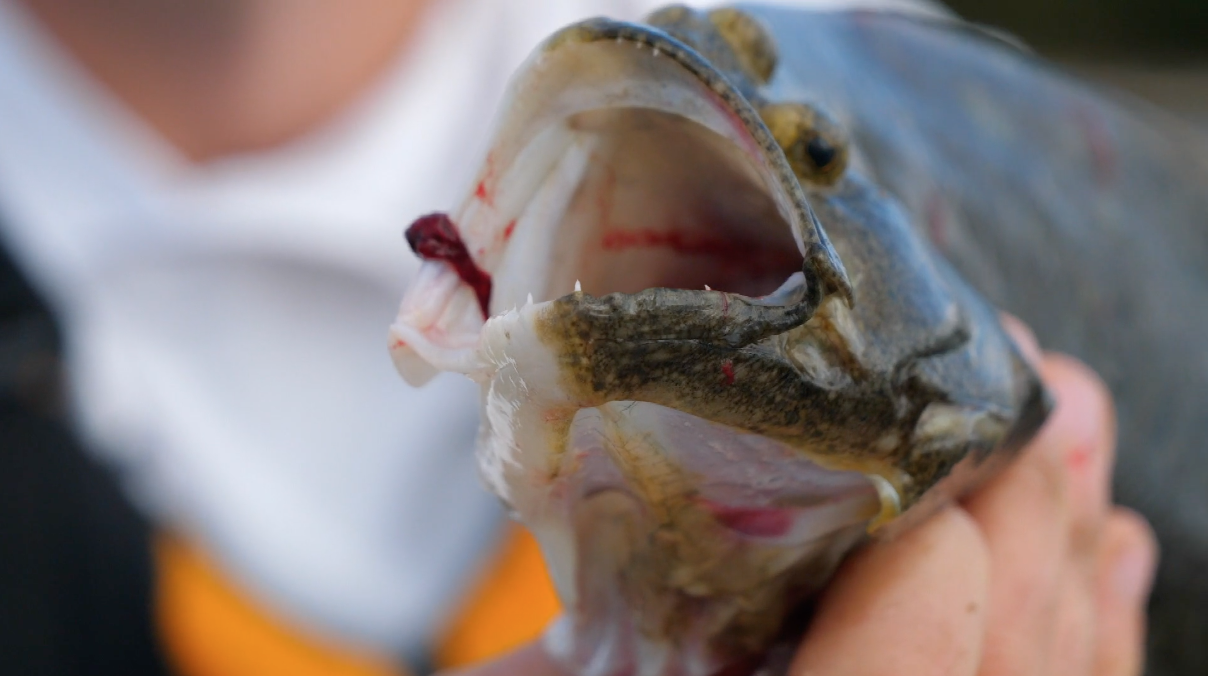
Fluke are not sedentary creatures. Just take a look at the teeth on this juvenile and you can clearly see that fluke are built for hunting.
All you have to do is study the jaws of a fluke to know this. They have teeth like a bear trap. They will attack a larger bait relative to their own size. They are a really curious fish and will trail a bait for several seconds and many yards before striking.
Another perception is that they live and stay on the bottom. While the living part is accurate, they quite readily, when it suits them, come up off the bottom to explore or to strike at their prey.
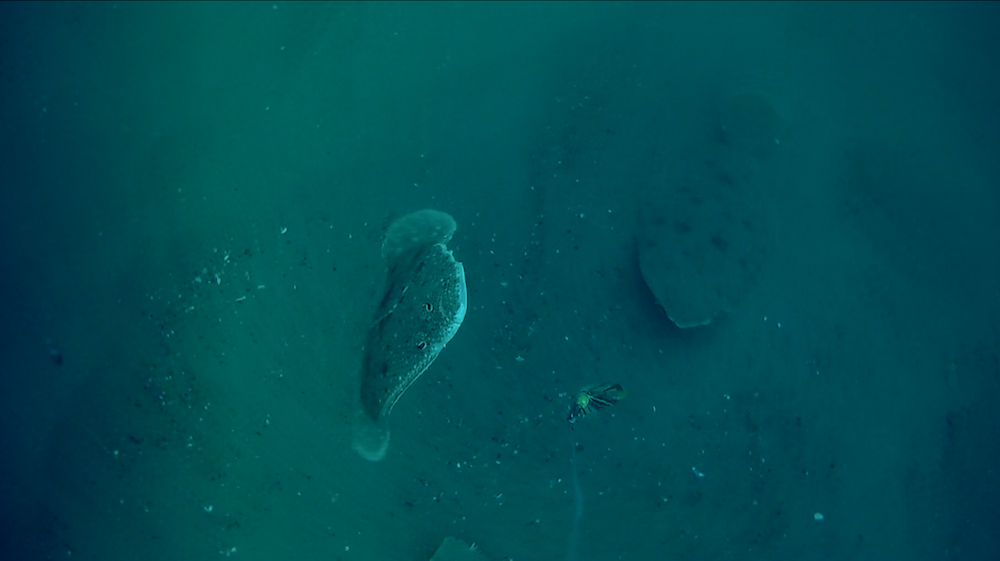
During mid-August of 2021 Ryan of My Fishing Cape Cod captured this image of a fluke coming up off the bottom to chase a lure while fishing the shoals to the southeast of Cape Cod.
Fluke have been caught while trolling mid water column lures often enough to make me believe that they are quite comfortable off the bottom.
Fluke can be difficult to hook due to the angle of their mouths. They require a great deal of patience and finesse to catch. A hard hookset isn’t necessary. In fact, I would argue that you need to tease them into taking the hook and hooking themselves.
The more aggressive ones will come up off the bottom and inhale your bait, but most of the time it’s a subtle tap, tap, tap on the end of the line.
Rigs and Experimenting with Presentation
More so than with other types of fishing, fluke fishing contains a spirit of tinkering and experimenting. I’ve seen all sorts of rigs with "fashion jewelry", bling, blades and bead combinations. There are all sorts of teasers, rattling jigs, and so on that are deployed.
The only thing rivaling the quantity of rigs might be the range of colors. I prefer to simplify the rig and make my choice depending on the drift and the bottom structure.


